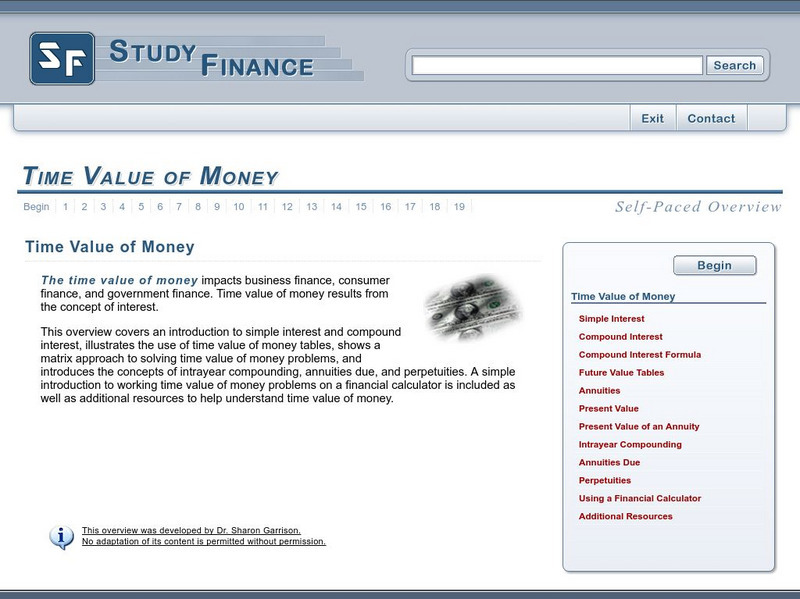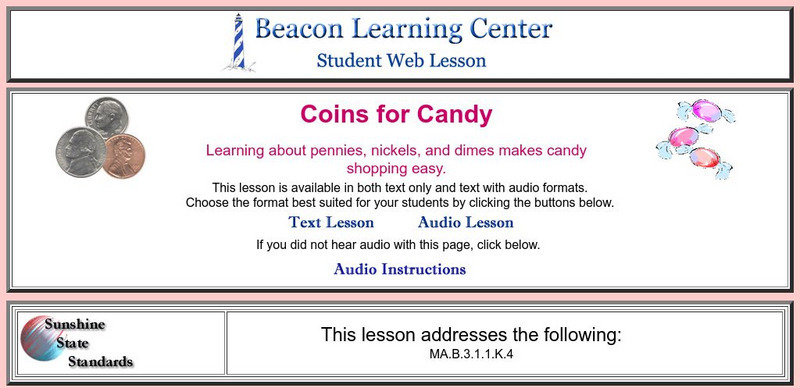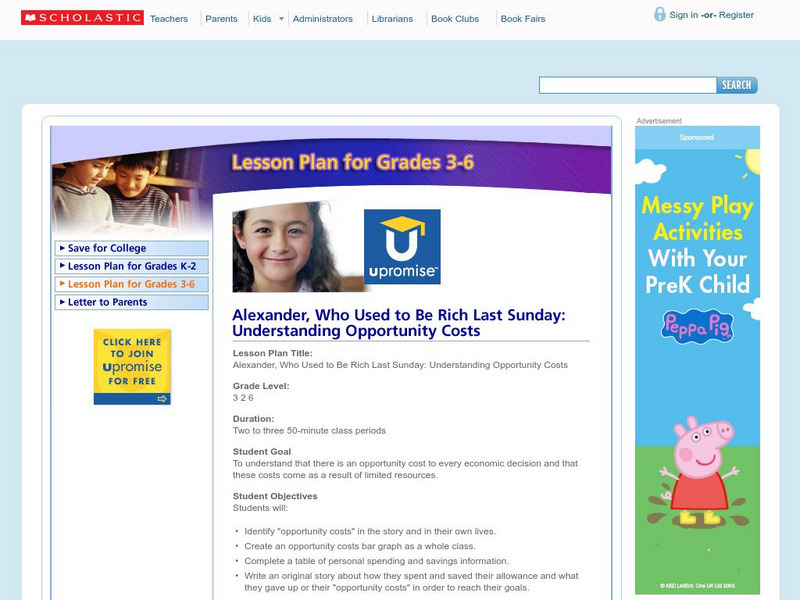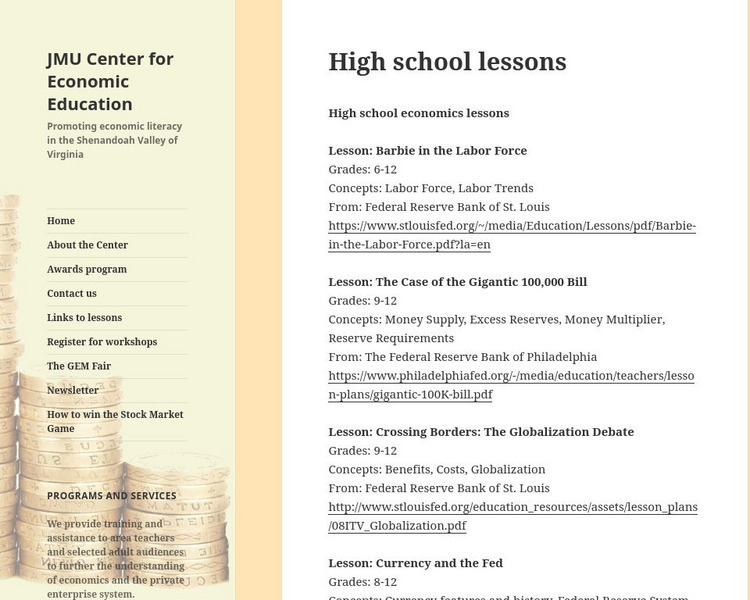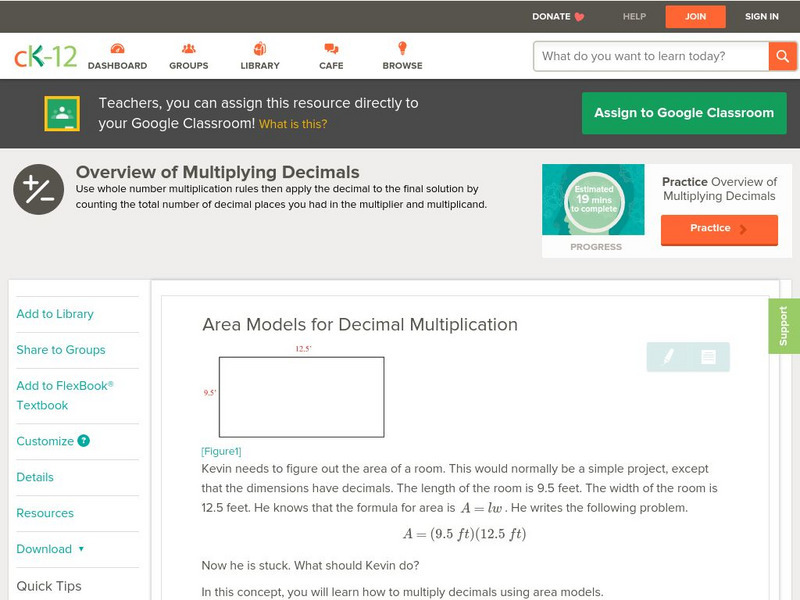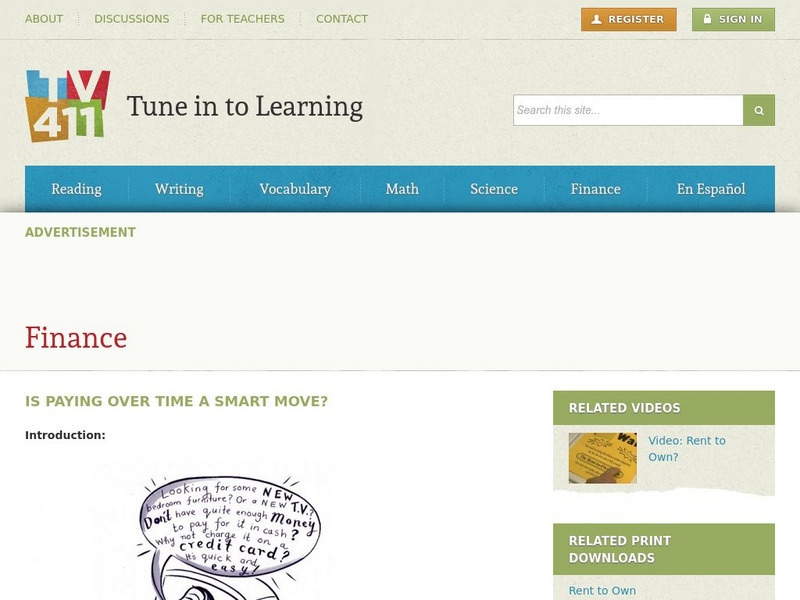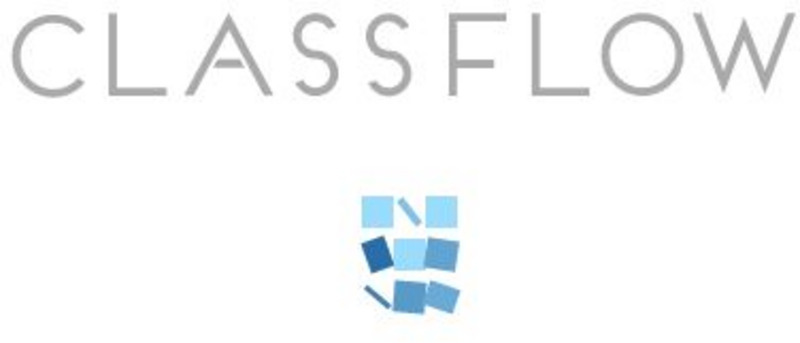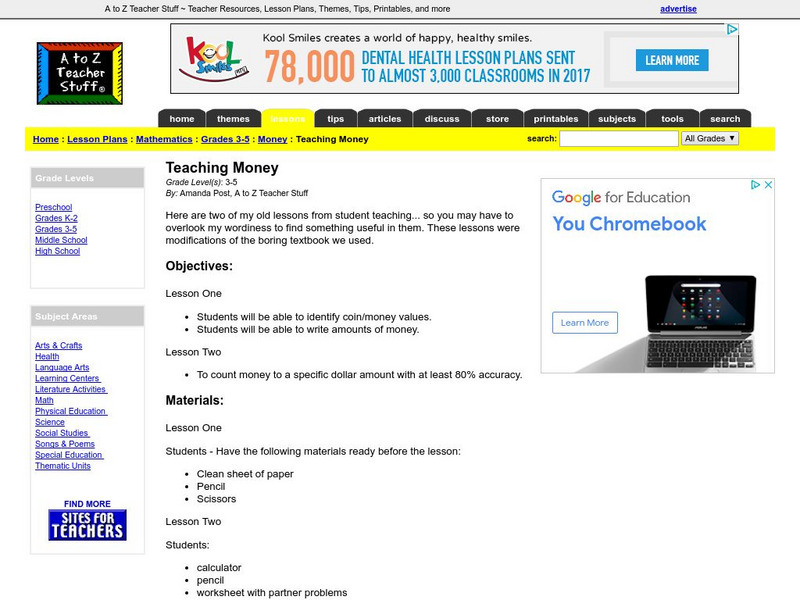Hi, what do you want to do?
Other
Study Finance: Time Value of Money
This resource presents brief explanations of topics related to interest, compound interest, and the time value of money.
TED Talks
Ted: Ted Ed: The Time Value of Money
We've all heard the phrase "Time is money." But what do these two things actually have to do with one another? German Nande explains the math behind interest rates, revealing the equation that will allow you to calculate the future value...
TED Talks
Ted: Ted Ed: Doug Levinson: What Gives a Dollar Bill Its Value?
The value of money is determined by how much (or how little) of it is in circulation. But who makes that decision, and how does their choice affect the economy at large? Doug Levinson takes a trip into the United States Federal Reserve,...
Council for Economic Education
Econ Ed Link: What Is Money? Why Does It Have Value?
In this instructional activity, learners consider the fact that the value of money differs depending on where the money is being spent. In order to understand this idea, students will first develop a deeper understanding of what it means...
Council for Economic Education
Econ Ed Link: Buy a Bond, James: A Lesson on Us Savings Bonds
This site is extremely informative for teaching children the value of saving money. "You will write a persuasive letter telling why people use savings bonds as a way to save their money."
Beacon Learning Center
Beacon Learning Center: Coins for Candy
An interactive lesson helps students identify, compare, and learn the value of coins including pennies, nickels, and dimes.
Council for Economic Education
Econ Ed Link: The Changing Face of Money
In this lesson, students play a game to guess which objects have been used as money throughout history. In the process, they learn several basic economic concepts. For instance, money must be a unit of account, meaning that it must be...
University of Regina (Canada)
University of Regina: Math Central: Lesson Plan: Money, Money, Money
It all about money! Explore the concept of money in this real-world, unit plan. A collection of six lessons where students practice skills such as coin identification, mental math, menu math, making change, math operations with coins,...
Scholastic
Scholastic Lesson Plan: Alexander, Who Used to Be Rich..
This multipart lesson plan the cost of opportunities when you have limited resources. It uses the hilarious children's book, "Alexander, Who Used to Be Rich Last Sunday" by Judith Viorst to drive the lesson home.
Scholastic
Scholastic: Adventures in Math: Lesson 1: Money Basics
Why do we use money? Learn why we need money and to identify bills and coins.
University of Houston
University of Houston: Mathematics Lessons: Counting on Coins
This lesson plan for coin identification is aimed at Kindergarten and First Grade. Lots of activities, suggestions and other resources are also available.
James Madison University
James Madison University: Online High School Economics Lessons
James Madison University has developed a variety of online economic lessons for high school young scholars. Explore basic economic and financial concepts.
CK-12 Foundation
Ck 12: Arithmetic: Combinations of Decimal Money Amounts
[Free Registration/Login may be required to access all resource tools.] Write amounts of money as decimals.
AAA Math
Aaa Math: Aaa Math Lessons
AAA Math's interactive tutorials and lessons assist students grades K-8 improve their understanding of a wide range of arithmetic topics. Students are provided with immediate feedback as they complete the "Learn," "Practice," and "Play"...
Utah Education Network
Uen: Let's Find Out About Money
In this multisensory lesson, students will learn the characteristics of each coin (penny, nickel, dime and quarter) and the value for each type of coin. Students will learn record observational data, learn a song, recite a poem, and play...
University of Nebraska Omaha
University of Omaha: Why We Save [Pdf]
Why do people need to save money? This lesson plan is geared for Kindergarten through 2nd grade and helps students understand the reasons for saving.
NumberNut
Number Nut: Is There Enough? Values Under Thirty Cents
Count the coins and decide whether you have enough money to buy the object. Money value is less than thirty cents. There are ten random questions.
Council for Economic Education
Econ Ed Link: Hawaiian Economics: Barter for Fish & Poi
Use this lesson to learn more about the Hawaiian economics system. Learn how they developed and used this specialized type of money system. "In this lesson, you will learn how specialization and division of labor increased productivity...
Education Development Center
Tune in to Learning: Is Paying Over Time a Smart Move?
At T.V. 411 you can explore the concept of paying over time with situations involving credit cards, rent to own items, and more. This interactive lesson gives the learner an opportunity to make decisions about money management.
Better Lesson
Better Lesson: Hundreds, Tens, Ones Are Coins Too
Second graders will extend their understanding of hundreds, tens and ones using dollars, dimes and pennies as another way to express groups of 100, 10 and 1.
Scholastic
Scholastic: Adventures in Math: Lesson 1: Saving Money for Your Future
Tips for learning the value of saving money to achieve your financial goals.
ClassFlow
Class Flow: How Much Money Do You Have
[Free Registration/Login Required] In this flipchart every page has a different total value of currency. Students can practice counting money. This flipchart can be used to add to your currency lesson or used as a center.
PBS
Pbs: The Fall of the Dollar (Lesson Plan)
A instructional activity that helps student understand how exchange rates are determined and how the value of a nation's currency is connected to its international trade. Students use an article from a time when the U.S. dollar was...
A to Z Teacher Stuff
A to Z Teacher Stuff: Teaching Money
This lesson plan site from A to Z Teacher Stuff focuses on young scholars identifying coin, money values, writing amounts of money, and counting money to a specific dollar amount with at least 80% accuracy.





